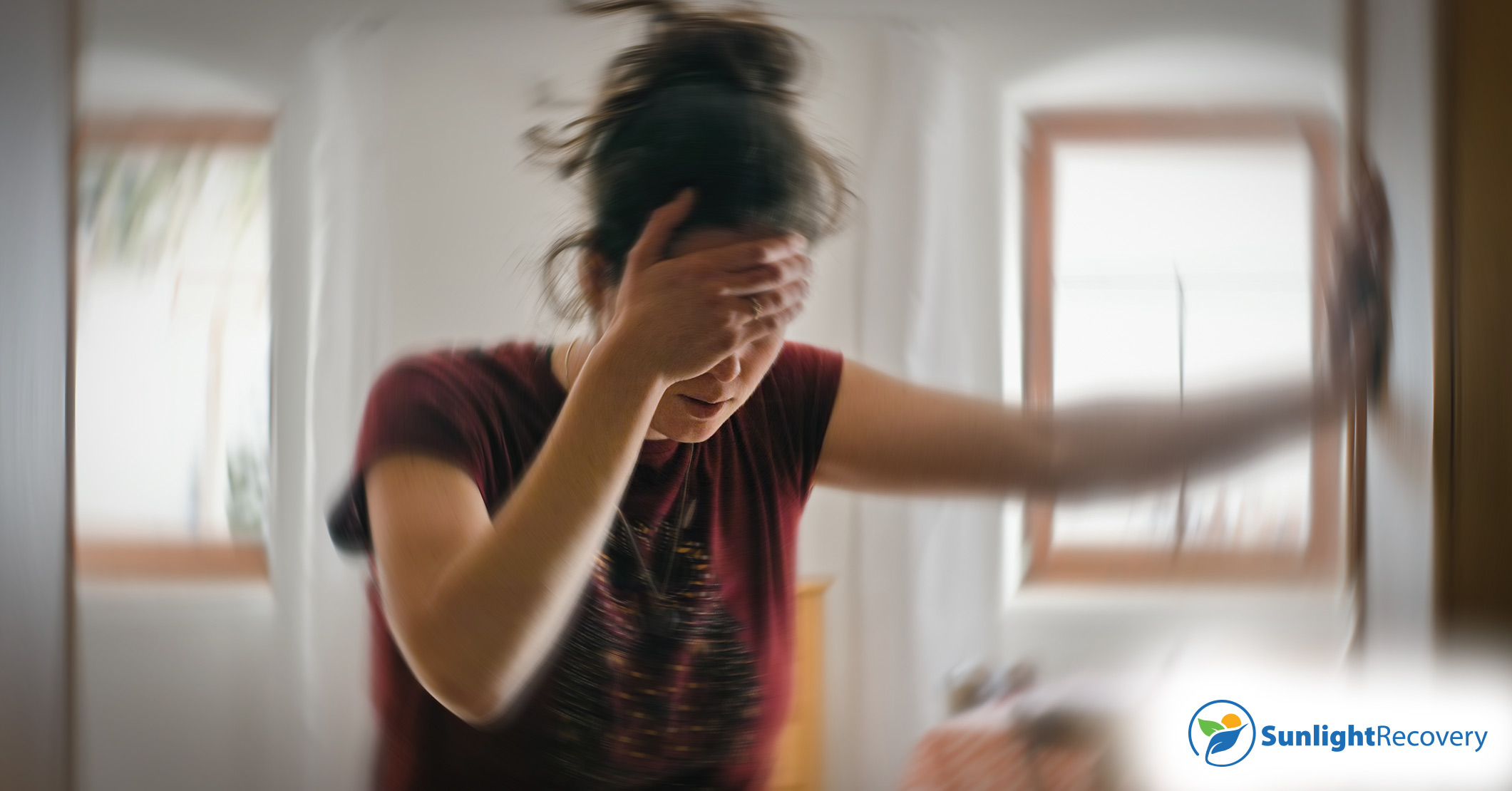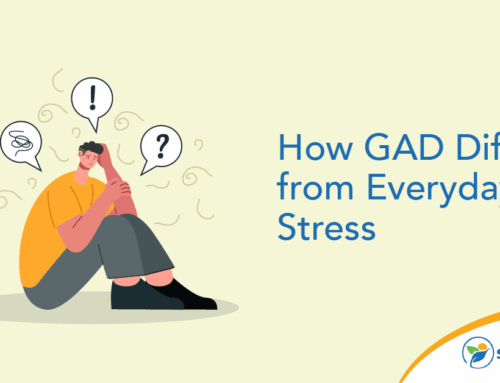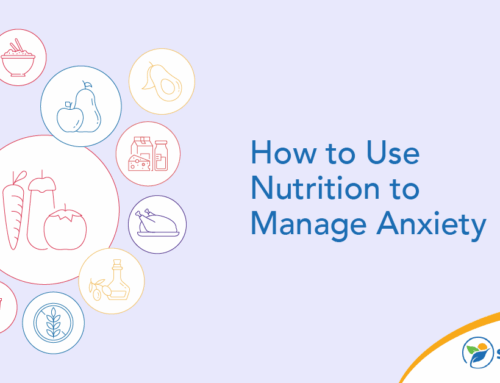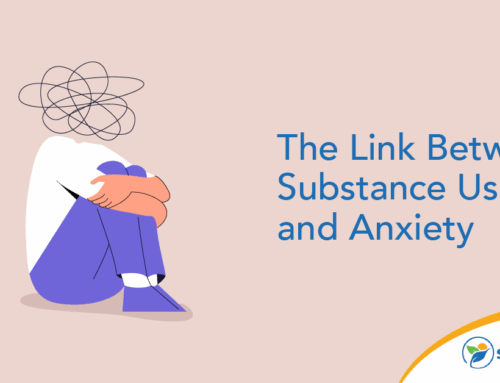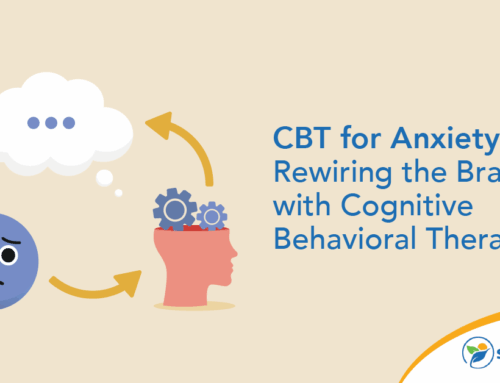Imagine going through life as though you’re constantly on a merry-go-round: feeling lightheaded and dizzy, unable to focus or remain stable. This is a reality for many people, and the culprit isn’t always physical — sometimes it’s mental.
Lightheadedness and mental health are more related than most people think. It’s possible to fix your physical symptoms by addressing the mental ones.
In this article, we’ll discuss why lightheadedness and mental health are linked, how to identify the cause of your symptoms and what you can do to feel better.
Introduction to Lightheadedness and Dizziness in Relation to Mental Health
Lightheadedness often manifests as a looming sense of faintness or the unsettling feeling that you’re on the verge of passing out. Dizziness, by contrast, typically presents as the disorienting sensation of spinning or a sudden, unexplained loss of balance.
While these symptoms may be elicited by various physical factors such as dehydration, ear infections or unexpected changes in blood pressure, they’re also significantly linked to mental health disorders, notably anxiety and depression.
Staying informed can lead to timely recognition, which makes the difference between suffering in silence and getting the treatment you need. Every symptom matters, no matter how small.
Common Causes of Lightheadedness Linked to Mental Health
It’s not uncommon to feel lightheaded when you’re struggling with a mental health condition. But while this may seem like one inconsequential symptom, there are emotional factors in dizziness that can signal something bigger.
Below are some common causes of lightheadedness linked to mental health:
- Excessive stress: When our brains are overloaded with stress, our bodies react, and lightheadedness is a common consequence. Taking time for yourself via relaxation techniques or spiritually fulfilling activities can help mitigate these effects.
- Anxiety disorders: It’s not uncommon for folks who deal with panic disorder or generalized anxiety disorder to experience bouts of lightheadedness. During a panic attack, for instance, you might hyperventilate, which can cause you to feel dizzy or lightheaded.
- Depression: This mental health condition results in feelings of intense sadness and a lack of interest in activities you once enjoyed — but it can also make you feel lightheaded. Depression often disrupts sleep patterns and appetite, which can lead to fatigue and malnutrition. Both of these conditions can cause feelings of lightheadedness or dizziness.
- Post-traumatic stress disorder (PTSD). Trauma can forge profound psychological scars, often leading to PTSD. In this case, feeling lightheaded can be a distressing flashback-related symptom. This can result in heightened instances of rapid breathing and elevated heart rate, both of which may bring about feelings of lightheadedness.
Exploring the Connection Between Anxiety and Dizziness
The connection between anxiety and dizziness paints a compelling picture of how our physical and emotional states intertwine. Our senses are in a constant state of informing each other — but it can be as challenging as it is vital.
Several key factors can explain why dizziness causes and mental health are linked:
- Changes in breathing: Anxiety can cause us to take quicker, deeper breaths, lowering the level of carbon dioxide in our blood. This can contribute to feeling dizzy, along with other symptoms like lightheadedness, nausea and a tingling sensation in our hands and feet.
- Fight or flight response: This primal reaction is activated when we encounter perceived threats. Our system is then flooded with adrenaline, which can lead to feelings of lightheadedness.
- Vestibular system interactions: Research indicates that the parts of the brain responsible for balance and anxiety are often interconnected, meaning anxiety can trigger dizziness (or vice versa).
- Balance and coordination: Anxiety affects more than just our psychological well-being — it can impact our physical balance and coordination as well. High stress levels can disrupt the function of the inner ear, which helps us maintain our sense of balance.
It’s also good to note that a person can experience anxiety and dizziness simultaneously without them being linked. If you start to notice these symptoms together and are unsure about their underlying causes, consult your health care provider.
Coping Strategies for Managing Lightheadedness With Mental Health Considerations
Addressing anxiety and lightheadedness necessitates a comprehensive approach that considers managing lightheadedness with mental health. Here are several strategies to help relieve these symptoms:
- Adopt relaxation techniques. Activities like yoga, meditation or deep breathing exercises can become your healing allies. They offer a quiet space to reconnect with yourself, reducing anxiety and lightheadedness. Try to find a few quiet moments to engage in these practices every day.
- Steer clear of stimulants. While caffeine hits can feel energizing, they also stimulate your nervous system, possibly aggravating anxiety and triggering dizzy spells. To help limit these feelings of restlessness and imbalance, consider cutting back on your caffeine and nicotine intake.
- Stay engaged. Distract your mind from the sensations of anxiety and dizziness by indulging in activities you love. Whether it’s reading, painting, walking in nature or any of your hobbies, these activities can bring joy and focus and reduce stress levels, helping alleviate anxiety-induced dizziness.
- Find comfort in music. Gentle, calming music can do wonders to soothe an overwhelmed mind. It can help reduce stress hormones, lower your heart rate and minimize feelings of anxiety, offering an auditory sanctuary from feelings of dizziness.
- Pause and breathe. The world can wait for a moment. If you feel lightheaded, find somewhere to sit, close your eyes and focus on deep, slow breaths. This can help reset the balance mechanisms in your ear and regulate your blood pressure, alleviating dizzy spells.
Seeking Professional Help: When to Consult a Doctor
Dizziness can be disorienting and overwhelming, especially when you’re trying to work or study. It can make it hard to concentrate on the task at hand and frustrating if you’ve been struggling with this problem for a long time.
If you or your loved one is experiencing dizziness that interferes with your daily life, it might be time to seek professional assistance. At Sunlight Recovery, we understand the challenges that constant dizziness can pose to your everyday routines and personal peace. Nobody should have to navigate these difficulties alone, and we’re here to offer a helping hand. Contact us today and start your journey towards steadier, brighter days.


